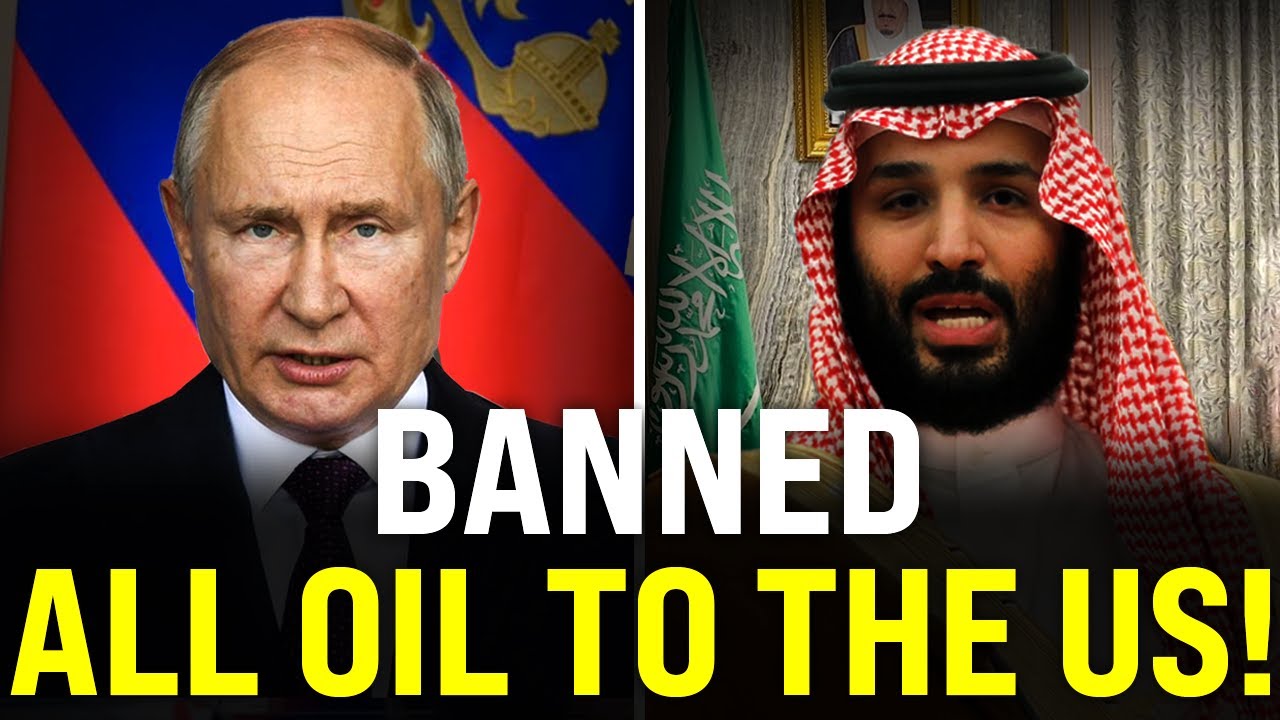
Saudi Arabia & Russia JUST BANNED US From All OPEC Oil Beating Sanctions & Collapsing The US Economy
Keep up to Date & Bypass the Big Tech Censorship
Get uncensored news and updates, subscribe to our daily FREE newsletter!
Russian strongman Vladimir Putin and Saudi Crown Prince Mohammed bin Salman are reportedly “satisfied” with oil markets after sharing a phone call over the weekend that’s sure to raise feathers in Washington.
According to Russian state media, Putin and MbS (as he’s colloquially known) had a “friendly, constructive and informative” conversation on Friday in the wake of last month’s OPEC production cuts of about 1.2 million barrels per day (bpd). Russia, a member of the so-called OPEC+, chipped in with a half million bpd of its own.
“With this in mind, it was agreed to build up contacts in specific areas of cooperation,” according to a statement from the Kremlin.
| Recommended Books [ see all ] | ||||
|---|---|---|---|---|
 |  |  |  |
 |
After sagging in the months after Russia’s invasion of Ukraine and multiple bank failures in the US and Europe, oil prices jumped about 5% on the news of the OPEC cut and have stabilized in the $80 range. The OPEC basket — a posted price that doesn’t trade — was going for about $84.
That’s good news for Putin, who is relying on oil revenue to fund his faltering war efforts in Eastern Europe. Russian seaborne cargoes are under a fixed price cap of $60 and Russia has been looking for new buyers as the EU attempts to wean itself off Putin’s crude dependency.
Despite the bans, Russia has emerged as the top oil supplier to India — the world’s third largest importer after China according to a Reuters analysis. Ironically, the US was the planet’s largest importer — selling 6.1 million barrels per day — while simultaneously being its largest producer.
Which underscores why President Joe Biden travelled with cap in hand to visit MbS in Riyadh last October to urge the Saudis to pump more oil. Instead, they’ve cut almost 3 million bpd since then, straining relations.
Saudi has also cozied up to China in recent weeks after joining the Shanghai Cooperation Organization — along with India — prompting speculation that it is teaming up with Biden’s geopolitical rivals to displace the US dollar as the default currency for crude oil payments.
OPEC has almost always had a policy of defending market share and will face increasingly stiff competition from the US as its production continues to rise and domestic demand goes down, freeing up more of its own barrels for export.
“OPEC’s output cut decision is helping Russia as well, as the planned supply cut has lifted global oil prices and at the same time narrowed the discounts for Russian oil against Brent.
This latest step by Saudi Arabia away from the US and towards the China-Russia axis should come as no surprise to anyone who has been watching developments in the Kingdom since the rise of Crown Prince Mohammed bin Salman (MbS) from around 2015. At that point, he was not Crown Prince, that role was held by Muhammad bin Nayef (MbN) – but rather Deputy Crown Prince with burning ambition to take the number one succession spot upon the death of King Salman. His stint as Defense Minister was disastrous, with the dramatic escalation of the war against the Houthis in Yemen – including indiscriminate bombing of civilian targets, roundly condemned by the West. This led the German intelligence service, the Bundesnachrichtendienst (BND), to leak an abridged internal-only assessment report of MbS to various trusted members of the press that stated: ‘Saudi Arabia under MbS has adopted an impulsive policy of intervention.’ It went on to describe MbS in terms of being a political gambler who was destabilising the Arab world through proxy wars in Yemen and Syria.


